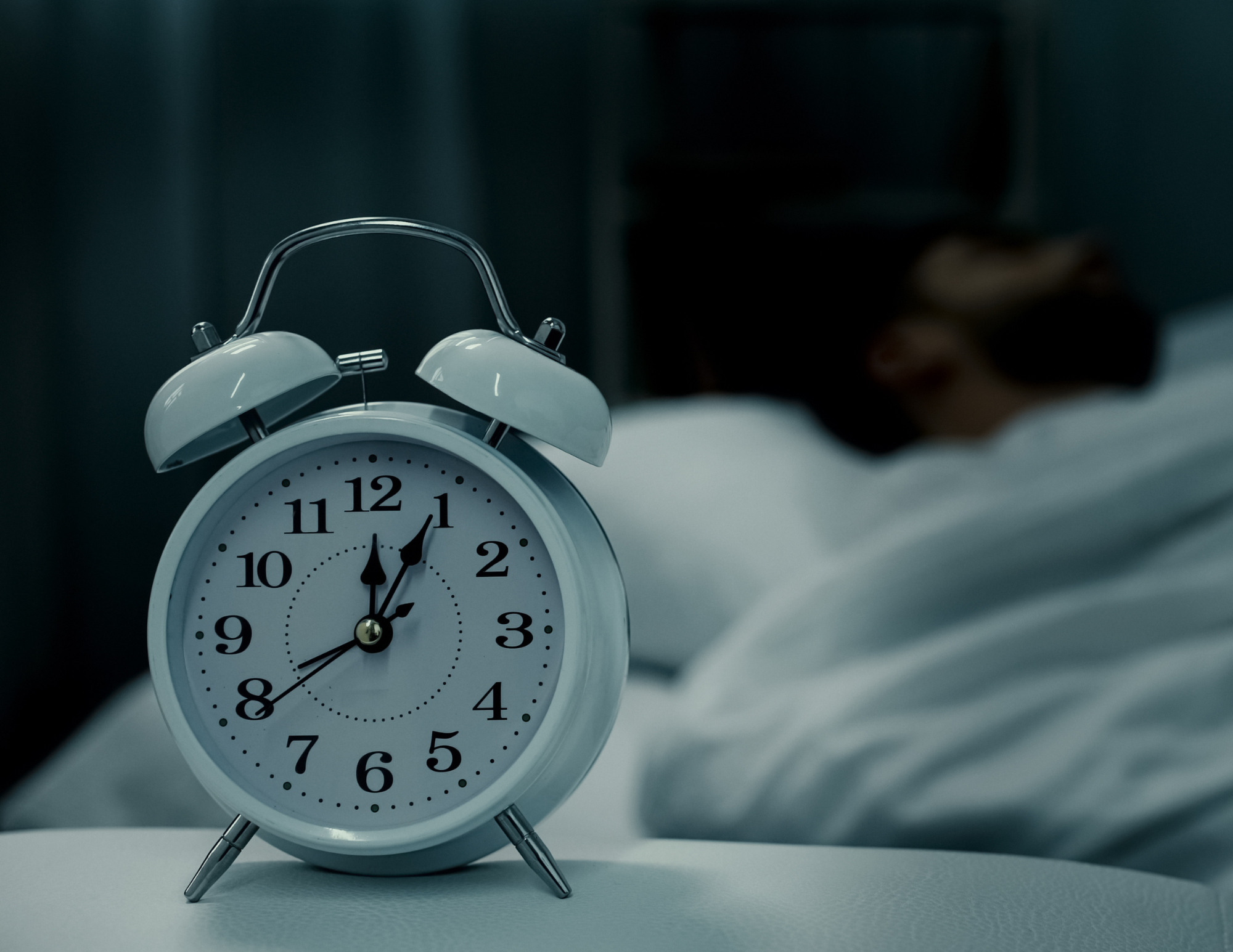Wake up sleepy head, it is time to learn the importance of sleep and the impact it has on our health!
Let’s start with an in-depth look on what sleep entails. According to Johns Hopkins Sleep Researcher and Neurologist Mark Wu, M.D., PH.D., “sleep is a period during which the brain is engaged in a number of activities necessary to life—which are closely linked to quality of life” (1). Already knowing what sleep is and that it is important, do you know why our bodies need sleep? During the hours that we are snoozing, our brain and body are still working and setting up for the next day. If you think about it, sleeping is how we recharge, just like our phones when we plug it into the charger at the end of the day; it is not to be disturbed until needed again. Our bodies require 7-9 hours of sleep (according to the National Sleep Foundation) to be able to recharge, and if our sleep is compromised, so is our health and quality of life. We should spend about ⅓ of our day asleep, and while doing so, our brains will perform the tasks it needs so that by the time we wake up, we are ready to take on the next day!
The quality and quantity of sleep make an impact in our day-to-day lives, playing a role in our mood, energy levels, bodily functions, and more. Let’s talk about what can result from a poor sleep routine and how it impacts our health:

Decreased Energy Levels
When we don’t get enough sleep, we tend to feel more tired, resulting in us relying on an increased amount of caffeine and sugar to hopefully feel energized enough to get through the day. When we sleep we conserve and store our energy, and when we don’t get enough rest, the next day we tend to turn to calories to provide us energy and stimulants like caffeine in order to feel “awake”. Sleep deprivation can lead to an increase in energy intake (calories), and a decrease in energy expenditure (activity and exercise), making us feel more tired at the end of the day and potentially causing us to gain weight. If we average about 4-6 hours of sleep each night, consume 3+ cups of coffee filled with sugar, a quick breakfast such as a donut each morning, and skip our daily workout to go home because we feel tired, we enter this endless cycle of the constant need to consume energy in order to replace energy lost from lack of sleep.
One way to break this cycle is by introducing naps into your day. By incorporating a 15-20 minute nap, your body will be able to recharge for the duration of the day until it is time to go to bed. Continuing this process, eventually your body will want to get all of its rest at once instead of in the middle of the day, so if you notice that you need to reset your sleep routine, try napping! It is important to know that taking too long of a nap (e.g. 1+ hours) can continue the pattern of not getting enough rest at night, so make sure you set an alarm! You may also try waking up at the same time every day, which can result in your body wanting to go to bed at a time that will allow you to get enough rest before needing to wake up. Changing your sleep routine may not happen overnight, but rest assured, practicing consistency can result in getting a good night’s sleep!
Weight Gain
Having poor sleep patterns can allow one to slip out of their daily routine, making it hard to stick to your healthy habits. Getting minimal sleep, not eating a healthy diet, not exercising, and having little to no energy to do daily tasks can all result in weight gain. It is important to not only get enough sleep in order to have the energy to perform the habits that keep you on track, but also to maintain a healthy weight, as being overweight and obese can decrease sleep quality as well. Sleep apnea, GERD, osteoarthritis, and other chronic diseases that can be a result of being overweight or obese can have a negative effect on one’s sleep. By practicing good sleep habits, it will be easier to continue with your healthy habits to prevent weight gain.
Increased Appetite
If you were to average about 4-6 hours of sleep per night, the body has less time to manage its hormones, resulting in the increase of ghrelin (hunger hormone) and decrease of leptin (satiating hormone) (2). During the hours of being awake, a surplus of ghrelin levels can lead to an increase of calorie consumption, and a decrease in leptin causes the inability of feeling full, resulting in potentially overeating at meals. When consuming high calorie portions/high calorie foods and not getting enough sleep, the excess calories tend to be stored around the stomach, which results in building up the visceral fat around the abdomen and increases the risk of chronic diseases, such as heart disease and Type II Diabetes (we talk more about this below!).
Ways to break this habit is by planning ahead and pre-portioning your meals to be full of fresh vegetables, lean protein, and healthy fats to decrease the likelihood of overeating and gaining weight. It is also important to stay consistent with an exercise regimen, such as exercising in the morning to prevent higher levels of adrenaline in the evening which can impact one’s sleep. Along with a healthy diet and exercise routine, make sure you check out the tips below to help promote good sleep.
Decreased Metabolism*

Lack of sleep can decrease the body’s ability to lose body fat as a result of having an increase of cortisol levels in the body (stress hormone). Having an increase in cortisol levels can make it harder to lose weight, as it lessens the body’s ability to burn calories, or slows down one’s metabolism. This then affects the body’s ability to respond to insulin and increases fat storage. If you have Type II Diabetes, or are at risk of having TIID, getting enough rest can decrease cortisol levels and allow the body to function as it should!
Cortisol levels also increase if there are high stress levels, making stress reduction an important part of a sleep routine. You can read more about how to decrease stress levels by reading our Stress Blog here!
*Getting proper sleep does not imply that your metabolism will increase or that you will lose weight, but it can help prevent weight gain when done so with other healthy habits.
Increased Risk of Chronic Diseases
Sleep deprivation (sometimes referred to as insomnia), or hypersomnia (inability to stay awake), can result in increased stress levels, increased blood pressure, decreased control of blood glucose levels, and increased inflammation in the body (3). Sleep apnea, in relation to being overweight or obese as stated above, has an effect on elevated blood glucose levels and blood pressure, but it also can impact the overall quality of sleep depending on the severity.
“People who have apnea typically experience multiple awakenings each night as a result of the closing of their airway when they fall asleep. In addition to these sleep disturbances, apnea sufferers also experience brief surges in blood pressure each time they wake up. Over time, this can lead to the chronic elevation of blood pressure known as hypertension, which is a major risk factor for cardiovascular disease.” (3)
Other chronic diseases, such as heart disease, stroke, Type II Diabetes, and more can be a result of being overweight or obese and getting poor sleep, but the risk can be reduced if a healthy weight, lifestyle, and sleep routine are maintained.
Now that we know the side effects of poor sleep, here are some tips that can help improve your sleep quality!
- Wake up and go to bed at the same time each day, including weekends. While it is nice to “catch up” on sleep, it is important to get enough sleep each evening versus making up for it over the weekend. The amount of sleep we get acts the same as how many calories our body burns in a day, meaning that doing good one day does not make up for the other days in the week where we did not get enough sleep or ate too much food. Aim for 7-9 hours of sleep each night.
- Make sure that you are comfortable where you sleep. Set your room to a comfortable temperature and have little to no light exposure. Setting the scene for when you sleep will also help your body know that it is time to wind down, making it easier for you to fall asleep each night. If it is difficult to make your bedroom pitch black, try purchasing a sleep mask as it will block out all light!
- Turn off electronics at least one hour before bed. This limits the amount of screen time we are exposed to, and the blue light that is created from screens can negatively impact one’s circadian rhythm (sleep-wake cycle) (4).
- Exercise in the morning or afternoon to allow your body to wind down in the evening. When you exercise, your body will release endorphins (feel-good hormone), which causes the body to want to be awake. Your body also needs time to cool down from exercise, as the body needs to be at a normal temperature in order to fall asleep (5).
- Avoid caffeine, alcohol, and large meals before bed. Eating before bed is putting energy into the body, and going to sleep after a meal will have the body store the energy consumed from that meal as fat. Alcohol has an impact on overall sleep quality, and caffeine consumption prior to bed will confuse the body and disrupt sleep patterns.
Set up your evening for success by reading our Night Routine blog here!
Sources:
- https://www.hopkinsmedicine.org/health/wellness-and-prevention/the-science-of-sleep-understanding-what-happens-when-you-sleep
- https://sleepsherpa.com/how-does-sleep-affect-your-appetite/#:~:text=Sleep%20also%20controls%20glucose%20production,in%20appetite%20and%20food%20intake.
- https://healthysleep.med.harvard.edu/healthy/matters/consequences/sleep-and-disease-risk
- https://www.sclhealth.org/blog/2019/09/why-it-is-time-to-ditch-the-phone-before-bed/#:~:text=Blue%20light%20is%20harmful%20to,wake%20up%20the%20next%20day.
- https://www.hopkinsmedicine.org/health/wellness-and-prevention/exercising-for-better-sleep




